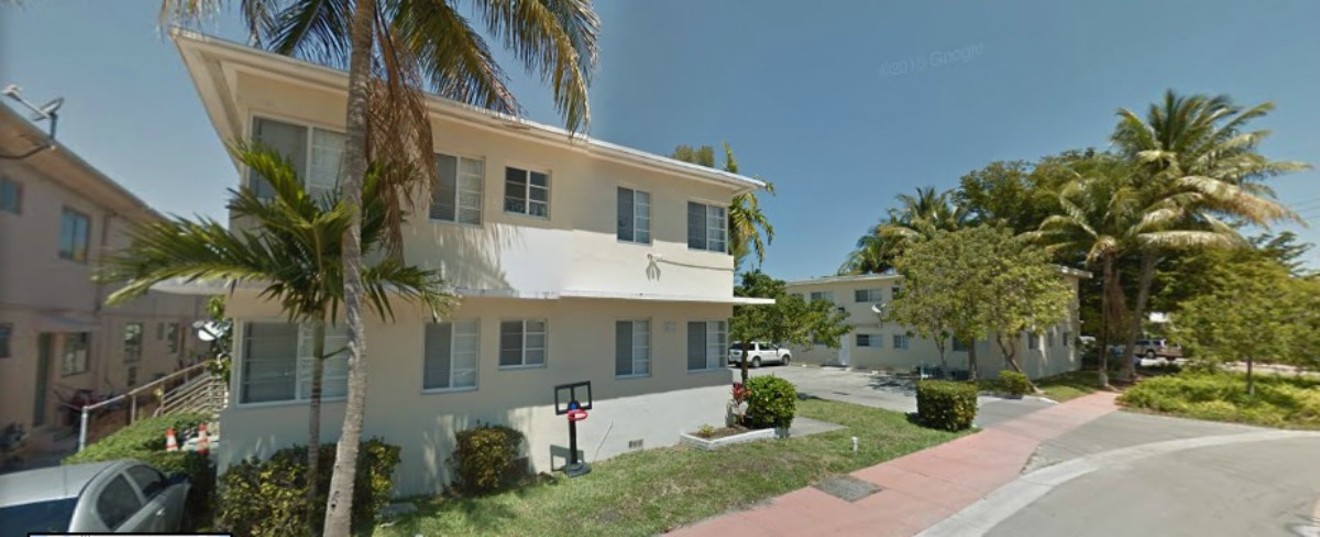But despite a huge demand for cheaper apartments on the Beach, the city is actually losing affordable-housing options. Beginning this fall, Crespi Park Apartments, a 16-unit complex in North Beach, will no longer be rented out as affordable housing, according to a letter from City Manager Jimmy Morales last month. Instead, monthly rent for one-bedroom apartments will rise by $400, while two-bedroom units will increase by $728. Though the majority of tenants are being moved to other affordable housing, three tenants will be displaced without any other alternatives.
The 16 apartments were acquired in 1999 by the Miami Beach Community Development Corporation (MBCDC), a nonprofit housing organization, using more than $1.1 million in public funding. According to HUD guidelines, though, owners who accept grant money for affordable housing must keep those units affordable only for a certain period of time, typically from five to 15 years.
Morales' letter cites MBCDC's financial woes as the main reason for the rent hike. For years, the organization has been plagued by accusations of misspending and possible corruption, and in 2013, the nonprofit's president, Roberto Datorre, resigned after a city audit revealed “fiscal and operational discrepancies” and $300,000 in double billing. Those managerial troubles are now having a real effect on Miami Beach's most vulnerable renters.
"The current MBCDC leadership inherited a variety of financial challenges stemming from compliance failures by the agency's previous management team," Morales' memo says. "As a result, MBCDC is carrying a large debt load and significant capital and maintenance needs within its 340-unit portfolio that have severely strained the agency, resulting in operating losses."
MBCDC executive director Beatriz Cuenca-Barberio, who took over in 2014, tells New Times the nonprofit's board decided to increase rent at Crespi Park to protect the rest of its affordable-housing portfolio. While rents stay the same for affordable units over the years, the organization inevitably ends up paying more for things such as utilities, water, and maintenance as costs rise, she says.
"Utilities went up tremendously this year, and living in Miami Beach, our insurance rates are superhigh," Cuenca-Barberio says. "By creating the higher rent structure, we're hoping the revenue from that building can flow into the organization as a whole and create a more stable financial future for us."
Beginning in September, the 16-unit building will become workforce housing, a designation for middle-class employees who don't qualify for low-income housing but struggle to pay market rents. One-
Although MBCDC has a history of struggles, Cuenca-Barberio says the city shares the blame for the current situation. In an ideal world, she says, city commissioners could vote to reduce water rates for affordable-housing providers or ease up on certain code violations, such as exterior paint requirements.
"We pay hundreds of thousands of dollars in water for all these buildings," she says. "Wouldn't it be great if the city acknowledged, 'Hey, this is affordable housing,' and ease our operating burden by not raising our water costs 10 or 20 percent? I think that there are areas we could work together, but I don't know that the will is there. I don't know if the support is there to do that."
And though city officials admit affordable housing is a huge problem in Miami Beach, the commission has been slow to act. Despite setting a goal in 2011 to create 16,000 affordable-housing units by 2020, the city is now counting on developers to somehow voluntarily create only 6,800 units by 2030. In the meantime, the Beach's population of fixed- and low-income residents will likely wait years to find an apartment they can properly afford.
"People look at Miami Beach and see the glamorous resort town and all the wealth that's here, but beneath












